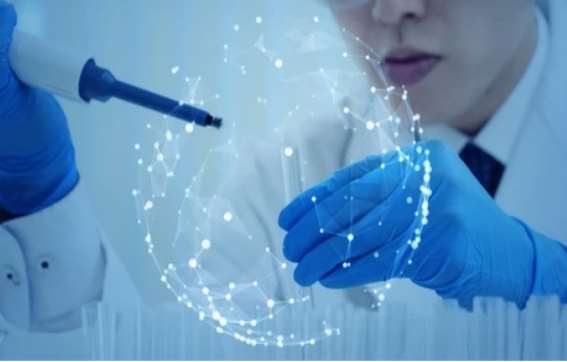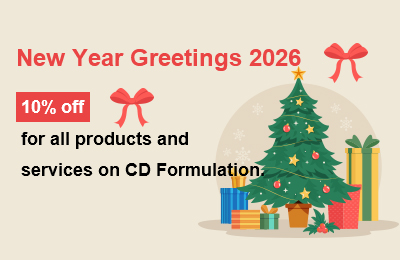Q1/Q2 (Q3) Pharmaceutical Deformulation and Reverse Engineering
InquiryPharmaceutical deformulation and reverse engineering have a wide range of applications in the pharmaceutical industry, including the development of generic drugs, product quality investigations, intellectual property dispute resolution, commercial product modifications for new markets, and understanding competitive formulations. CD Formulation's pharmaceutical deformulation and reverse engineering services are tailored to meet our client's needs for generic drug development, particularly when applied to the development of innovative drug delivery systems, to provide Q1/Q2 formulation evaluation data and demonstrate similarity to reference products and bioequivalence, thus helping you reduce development time and speed to market.
What is Q1/Q2 (Q3) Pharmaceutical Deformulation and Reverse Engineering?
Pharmaceutical deformulation, also known as reverse engineering, is the process of analyzing any individual ingredient in a drug to identify and understand its composition, formulation, and manufacturing. As a key part of the generic drug development and abbreviated new drug application (ANDA) process, drug deformulation reverse engineering can projects generate valuable data on the active pharmaceutical ingredient (API) and excipient ingredients to help pharmaceutical companies better develop and manufacture drugs, while improving the quality and safety of generic drugs. Regulations require that a generic drug formulation must have the same ingredients as Q1, the same quantities as Q2, and have the same chemical and physical properties as Q3 as the brand-name drug it is replacing.
- Q1: Identical ingredients, refer to the tested product that uses the same inactive ingredients as reference listed drugs (RLD), including data on the chemical nature, grade, and characteristics of each inactive ingredient.
- Q2: Quantitative sameness, refers to the concentration (quantity) of the inactive ingredients used in the test product is within ±5% of the concentration used in the RLD.
- Q3: Physical and chemical similarity, refers to the physical and chemical properties of the test product and the inactive ingredients used in RLD products. Parameters include appearance, pH, particle size, rheological behavior, drug polymorphism, drug release, etc.

Explore Our Q1/Q2 (Q3) Pharmaceutical Deformulation and Reverse Engineering Services
As a pharmaceutical company developing innovative drug delivery systems, CD Formulation is committed to providing pharmaceutical deformulation and reverse engineering services to accelerate the development of customers' generic pharmaceutical products. We provide RLD reverse engineering services for Q1 (qualitative) and Q2 (quantitative) equivalence of a variety of products, including but not limited to:
- Liquid formulation, including suspensions, emulsions, etc.
- Oral inhaled and nasal drug products (OINDP).
- Topical dermatological products.
- Tablet.
- Capsule.
- Semi-solid preparations, including ointments, gels, etc.
- Complex injectable formulation.
- Liposomes.
In addition, we provide unparalleled drug deformulation services to demonstrate equivalence for extended-release products, oral solid dosage forms, and transdermal patch delivery systems.
Importantly, our experienced scientists have a deep understanding of how to quantitatively analyze various excipients, including polymers, celluloses, emulsifiers, active agents, and other ingredients, and can determine the grade of excipients to obtain reference standards for use in generic pharmaceuticals development.
Generally Experimental Design of Q1/Q2 (Q3) Pharmaceutical Deformulation and Reverse Engineering
Our experimental designs are customized and developed based on customer's product characteristics and needs, and its wide range of analysis categories include but are not limited to:
- Product surface analysis
- Physical analysis
- Chemical analysis
- Product performance analysis
Specific Services of Q1/Q2 (Q3) Pharmaceutical Deformulation and Reverse Engineering
- Bioequivalence Evaluation (BE)
Our in vitro release testing (IVRT) and in vitro permeation testing (IVPT) for BE testing are conducted in accordance with FDA and EMA regulatory guidelines. IVRT and IVPT studies use Franz diffusion cells to measure the release rate and extent of API penetration of test and reference products through skin or permeable membranes.
- Similarity and Solid State Properties Analysis of Q3
For complex drug products, especially ophthalmic and topical formulations, conventional Q1/Q2 similarity analysis may not provide sufficient data. In these cases, our scientists will perform Q3 physicochemical similarity to reduce the risks associated with physicochemical differences between the generic drug and the RLD, which may include appearance, pH, particle size, rheological behavior, drug polymorphism, etc.
What Problems Can CD Formulation Solve for Generic Drug Development?
- Excipient quantification and identification of individual excipients in pharmaceutical formulations to determine grade and source.
- Analyze competitive or reference formulation
- Improve underperforming formulation
CD Formulation has extensive experience in the field of Q1/Q2 (Q3) drug deformulation and reverse engineering science. We can provide the latest technology and innovation to solve a variety of complex problems. Please contact us today to discuss how to advance the development of your generic drug.
Please note: Our products and services are not intended to be used directly in diagnostic or therapeutic procedures.
Related Services



